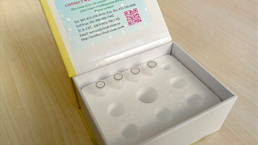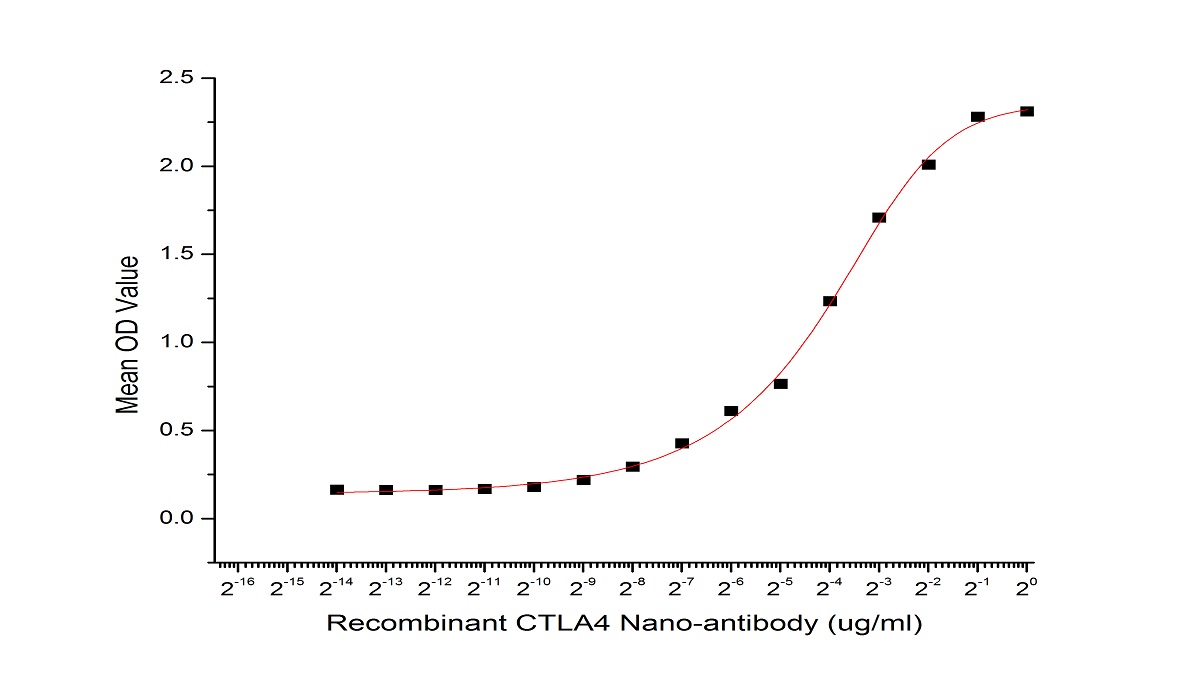Recombinant Antibody to Cytotoxic T-Lymphocyte Associated Antigen 4 (CTLA4) 

CD152; CELIAC3; CTLA4; GSE; IDDM12; Celiac Disease 3; Cytotoxic T-lymphocyte protein 4
- UOM
- FOB US$ 180.00 US$ 420.00 US$ 600.00 US$ 1,500.00 US$ 6,000.00
- Quantity
Overview
Properties
- Product No.RAB230Hu71
- Organism SpeciesHomo sapiens (Human) Same name, Different species.
- ApplicationsWB; IF; ICC; IHC; IP; FCM.
If the antibody is used in flow cytometry, please check FCM antibodies.
Research use only - Downloadn/a
- CategorySignal transductionImmune moleculeAutoimmunity
- SourceRecombinant monoclonal antibody preparation, Host CHO
- Ig Isotype IgG, Clone Number n/a
- PurificationProtein A + Protein G affinity chromatography
- LabelBiotin
- Immunogen n/a
- Buffer FormulationPBS, pH7.4, containing 0.02% NaN3, 50% glycerol.
- TraitsLiquid, Concentration 1mg/mL
Sign into your account
Share a new citation as an author
Upload your experimental result
Review

Contact us
Please fill in the blank.
Specifity
The antibody is a mouse monoclonal antibody raised against CTLA4. It has been selected for its ability to recognize CTLA4 in immunohistochemical staining and western blotting.
Usage
Western blotting: 0.2-2µg/mL;1:500-5000
Immunohistochemistry: 5-20µg/mL;1:50-200
Immunocytochemistry: 5-20µg/mL;1:50-200
Optimal working dilutions must be determined by end user.
Storage
Store at 4°C for frequent use. Stored at -20°C in a manual defrost freezer for two year without detectable loss of activity. Avoid repeated freeze-thaw cycles.
Stability
The thermal stability is described by the loss rate. The loss rate was determined by accelerated thermal degradation test, that is, incubate the protein at 37°C for 48h, and no obvious degradation and precipitation were observed. The loss rate is less than 5% within the expiration date under appropriate storage condition.
Giveaways
Increment services
-
 Antibody Labeling Customized Service
Antibody Labeling Customized Service
-
 Protein A/G Purification Column
Protein A/G Purification Column
-
 Staining Solution for Cells and Tissue
Staining Solution for Cells and Tissue
-
 Positive Control for Antibody
Positive Control for Antibody
-
 Tissue/Sections Customized Service
Tissue/Sections Customized Service
-
 Phosphorylated Antibody Customized Service
Phosphorylated Antibody Customized Service
-
 Western Blot (WB) Experiment Service
Western Blot (WB) Experiment Service
-
 Immunohistochemistry (IHC) Experiment Service
Immunohistochemistry (IHC) Experiment Service
-
 Immunocytochemistry (ICC) Experiment Service
Immunocytochemistry (ICC) Experiment Service
-
 Flow Cytometry (FCM) Experiment Service
Flow Cytometry (FCM) Experiment Service
-
 Immunoprecipitation (IP) Experiment Service
Immunoprecipitation (IP) Experiment Service
-
 Immunofluorescence (IF) Experiment Service
Immunofluorescence (IF) Experiment Service
-
 Buffer
Buffer
-
 DAB Chromogen Kit
DAB Chromogen Kit
-
 SABC Kit
SABC Kit
-
 Long-arm Biotin Labeling Kit
Long-arm Biotin Labeling Kit
-
 Mouse Antibody Variable Region Gene Amplification Kit
Mouse Antibody Variable Region Gene Amplification Kit
-
 Real Time PCR Experimental Service
Real Time PCR Experimental Service
Citations
- Circulating CTLA-4 levels and CTLA4 polymorphisms associate with disease condition and progression and hepatocellular carcinoma patients' survival in chronic …Pubmed: 32163858






